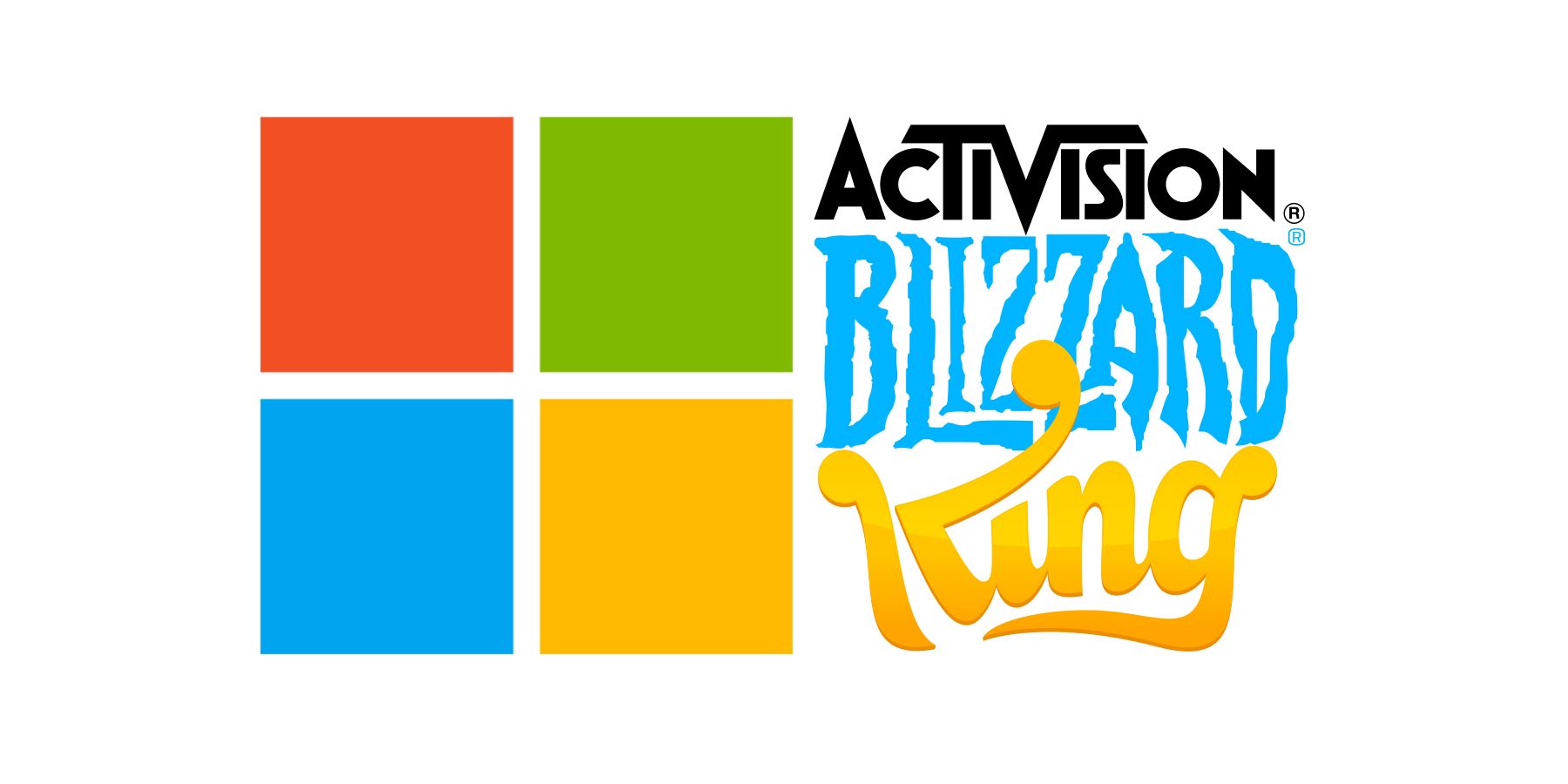FTC Challenges Microsoft's Activision Blizzard Buyout: A Legal Battle

Table of Contents
The FTC's Concerns Regarding Anticompetitive Practices
The FTC's core argument centers on the assertion that the Microsoft Activision Blizzard merger would create an anticompetitive monopoly, granting Microsoft undue market power and harming consumers. Their concerns primarily revolve around the potential for Microsoft to leverage its ownership of Activision Blizzard's immensely popular franchises, particularly Call of Duty, to stifle competition and consolidate its dominance within the gaming market.
The FTC believes the acquisition could lead to several negative consequences:
- Reduced competition among game developers: Microsoft's increased market share could discourage innovation and competition from other game developers, potentially leading to fewer diverse gaming experiences for consumers.
- Higher prices for consumers: A lack of competition could allow Microsoft to raise prices for games, subscriptions, and in-game purchases, directly impacting gamer spending.
- Limited choice in gaming platforms and content: The potential for Microsoft to make popular Activision Blizzard titles exclusive to Xbox could limit consumer choice and lock players into the Xbox ecosystem.
- Potential for Microsoft to make Call of Duty exclusive to Xbox: This is arguably the FTC's most significant concern. Call of Duty's immense popularity and widespread appeal across multiple platforms are central to their argument that the merger would unfairly limit competition.
Microsoft's Defense and Proposed Solutions
Microsoft has countered the FTC's claims, arguing that the acquisition would ultimately benefit the gaming industry and consumers. They've proposed several remedies to address the FTC's antitrust concerns and secure regulatory approval.
Key elements of Microsoft's defense strategy include:
- Long-term agreements to keep Call of Duty on PlayStation: Microsoft has pledged to keep Call of Duty available on PlayStation for many years to come, even after the acquisition is finalized, aiming to mitigate the FTC's concerns about exclusivity.
- Investment in cloud gaming infrastructure to benefit competitors: Microsoft has highlighted its investments in cloud gaming technology, arguing that this will benefit competitors by providing them with access to advanced cloud infrastructure.
- Emphasis on increased competition in the gaming market: Microsoft asserts that the merger will actually increase competition by fostering innovation and broadening access to games, particularly through their Xbox Game Pass subscription service.
Global Regulatory Scrutiny and International Implications
The FTC's challenge is not isolated; the Microsoft Activision Blizzard deal faces intense global regulatory scrutiny. Several other countries are conducting their own investigations, leading to a complex and multifaceted international antitrust review.
- The EU's ongoing antitrust review: The European Union's competition authorities are also closely examining the merger, potentially leading to different conclusions than the FTC's.
- Regulatory challenges in other major gaming markets: Regulatory bodies in other significant gaming markets, such as the UK and others, are also evaluating the potential impact of the merger on competition within their respective jurisdictions.
- Potential for different outcomes in different jurisdictions: The differing legal frameworks and priorities of these regulatory bodies could lead to varied outcomes for the Microsoft Activision Blizzard deal across the globe.
The Role of Cloud Gaming in the Debate
Cloud gaming plays a significant role in this antitrust debate. Microsoft’s substantial investments in Xbox Cloud Gaming are central to their arguments about expanded access and competition.
- Microsoft's investment in Xbox Cloud Gaming: Microsoft's considerable investment in this technology is presented as a positive factor, suggesting broader access to gaming for consumers.
- The potential for cloud gaming to democratize access to games: Cloud gaming has the potential to democratize access to high-quality gaming experiences, regardless of hardware capabilities, which Microsoft emphasizes in its defense.
- Concerns about Microsoft leveraging its cloud gaming infrastructure to gain an unfair advantage: Conversely, the FTC may also investigate the possibility of Microsoft using its dominant position in cloud gaming to unfairly favor its own titles and disadvantage competitors.
Conclusion
The FTC's challenge against Microsoft's Activision Blizzard buyout is a landmark case with far-reaching implications for the future of the gaming industry and antitrust law. The outcome will significantly impact competition, pricing, and consumer choice. The success of Microsoft's defense and proposed solutions, along with the global regulatory response, will determine the ultimate fate of this high-stakes acquisition. The role of cloud gaming, in particular, remains a central battleground in this ongoing legal fight.
Call to Action: Stay informed about the developments in this ongoing legal battle surrounding the Microsoft Activision Blizzard acquisition. Follow the case closely to understand the evolving dynamics and potential ramifications of this significant antitrust challenge. Understanding this FTC challenge is crucial for anyone interested in the future of the gaming industry and the implications of large-scale mergers in the tech sector.

Featured Posts
-
 Skarlet Gioxanson Oristiki I Apofasi Den Epistrefei Os Black Widow
May 13, 2025
Skarlet Gioxanson Oristiki I Apofasi Den Epistrefei Os Black Widow
May 13, 2025 -
 Spoment Na Dzherard Btlr Za Blgariya Emotsionalna Istoriya
May 13, 2025
Spoment Na Dzherard Btlr Za Blgariya Emotsionalna Istoriya
May 13, 2025 -
 Sir Ian Mc Kellen And James Corden Collaboration Announced A Comeback For Corden
May 13, 2025
Sir Ian Mc Kellen And James Corden Collaboration Announced A Comeback For Corden
May 13, 2025 -
 Razplakakha Li Se Fenovete Na Dzherard Btlr Zaradi Tazi Snimka Ot Blgariya
May 13, 2025
Razplakakha Li Se Fenovete Na Dzherard Btlr Zaradi Tazi Snimka Ot Blgariya
May 13, 2025 -
 The Importance Of Openness Ian Mc Kellens Message To Young Actors
May 13, 2025
The Importance Of Openness Ian Mc Kellens Message To Young Actors
May 13, 2025
